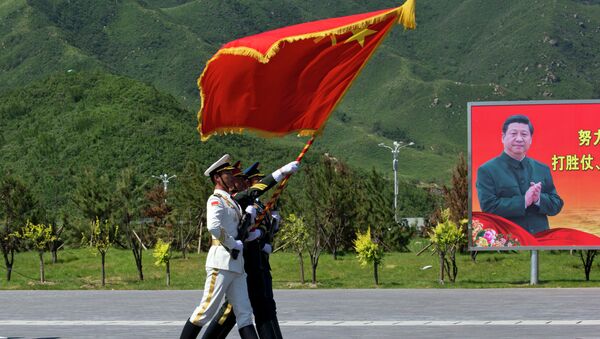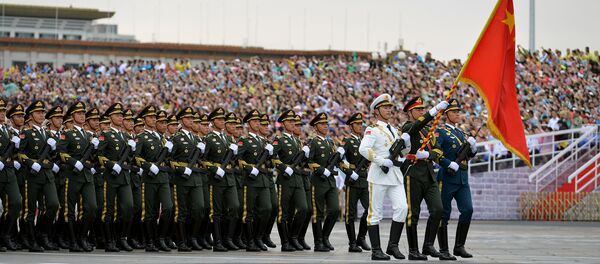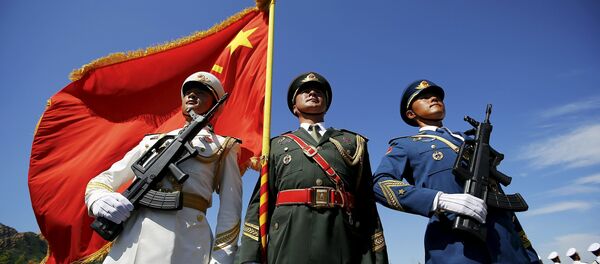The festivities will feature one of the most large-scale parades in the nation’s history. Nearly 12,000 troops will take part, but the Chinese government will also take the opportunity to highlight its latest military hardware, most of which will be unveiled for the first time.
"They represent the new development, new achievements and new images of the building of the Chinese armed forces," said Qu Rui, a military official organizing the event, according to Reuters.
On display will be 500 pieces of equipment, including modern tanks. A number of long-range ballistic missiles have been spotted during rehearsals, and according to Xinhua news agency, the Second Artillery Force, the military’s nuclear division, will showcase seven different types of missiles.
"The scale and number of missiles will surpass any previous outing," an official told Xinhua.
The parade will also feature nearly 200 aircraft, including fighters, bombers, and carrier-based aircraft. The latest J-15 carrier-based fighter has been spotted during rehearsals, and a lead pilot told Xinhua that an upgraded long-range bomber will fly overhead.
A squadron of military helicopters has also been observed during warmups.
A record number of foreign leaders will be in attendance, and military delegations from ten nations – including Russia – will also take part.
"At the moment, 30 heads of state confirmed their consent to participate in the events, it will be the largest event in the history of China regarding the number of participating heads of states," Chinese Deputy Foreign Minister Cheng Guoping said during a press conference on Thursday.
A number of world leaders, however, have refused Beijing’s invitation. Both US President Barack Obama and Japanese Prime Minister Shinzo Abe have declined, sending ambassadors instead. Most European leaders have made similar arrangements.
By skipping the event, Western leaders are attempting to signal their displeasure with what they see as Chinese aggression in the East and South China Seas. Despite the parade’s true intentions, many experts predict that the event will be seen as aggressive by rival Pacific nations.
"It’s possible that Japan and Southeast Asian countries will interpret this as a kind of warning to them," political scientist Xie Yue told Reuters. "I can’t say whether that’s warranted or not."
The Chinese government, however, has repeatedly stressed that the parade is about commemorating a historic event.
"The parade is intended to commemorate history, cherish the memory of our fallen revolutionary soldiers, uphold peace and usher in the future, with no other countries targeted," Qu said.
The event will be held in Beijing on September 3. To honor the victory of Chinese People’s War of Resistance Against Japanese Aggression and the World Anti-Fascist War, the parade will march through Tiananmen Square.





